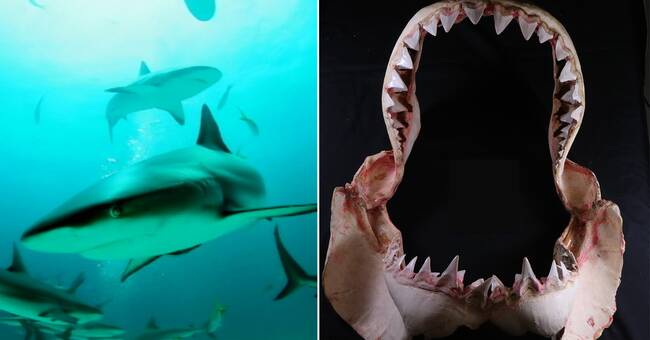19 million years ago, there were ten times more sharks than today.
But something caused a large and sudden mass death in the shark population.
The sharks found in the oceans today are a remnant of a previously much greater species richness.
- The new study shows that up to 90 percent of the shark population collapsed.
What is remarkable is that we have no idea what caused the great extinction, says Mohamad Bazzi, a biologist at Uppsala University who specializes in the evolution of sharks.
The same group of sharks are threatened today
The discovery, published in the journal Science, was made by paleontologists at Yale University by chance.
They worked to establish a time series on the sharks' long history on earth.
By studying fossil remains in the sediments on the seabed, the researchers examined the shark population's variations over time.
And they discovered a sharp decline in the number of shark fossils in sediments in the Pacific.
- Then it was sharks that live in open sea areas, so-called pelagic sharks, that were affected - white shark, herring shark and blue shark are examples of this.
And it is the same group of sharks that live under a serious threat today, says Mohamad Bazzi.
Man causes the next mass extinction
Sharks have a history of about 450 million on Earth, they survived, for example, the great mass extinction that wiped out dinosaurs 66 million years ago.
The sudden mass extinction that has now been discovered is not related to any of the known climate changes or natural disasters that have caused major upheavals in ecosystems.
More research is needed.
Researchers have previously calculated that sharks can cope with major changes in ecosystems.
- But the now discovered mass extinction gives cause for concern, says Mohamad Bazzi.
Overfishing, pollution and illegal hunting of shark fins have significantly reduced the shark population in recent decades, and many species are endangered.
- The origin of the diversity of species we see today, are those that survived 19 million years ago.
And now many of them are about to disappear, but this time we know what drives the extinction - human impact.

